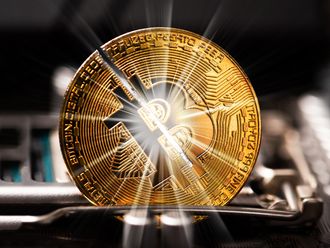What is the "elevator" pitch of Islamic finance to the non-Muslim and the sceptical Muslim? Why do news releases often become articles in Islamic finance?
Although, it is a 40-year phenomenon, has an Islamic bank broken in to the top 100 global brands, competing with Coca-Cola, Citibank, Google, etc? How about national or regional trusted brands?
What about an admired company to work for? Should Islamic banks be reaching for such "reachable" aspirations or continue attempting to win Islamic finance awards that appear every other month?
Perception is reality, and, for Islamic finance, the reality is it needs a better perception!
Public and media relations in Islamic finance have been tagged as an overhead or cost rather than being seen as an investment in the equity brand or goodwill.
Islamic finance operates in a conventional macro-environment, so is held hostage to external shocks and stresses.
The media, western or local, wants to know how these external shocks impact banks' operations, (compliant equity) products, depositor confidence, inter-bank liquidity, etc, and a "no comment" or "we don't have exposure to toxic assets," may no longer be responsive enough.
Islamic banks have been accused by some of being product pushers, including pushing conventional products wrapped in an Islamic wrapper, hence, eroding its authenticity. This is ripe for a PR media campaign against loss of integrity.
During the GCC real estate boom, dedicated Islamic financial institutions like Gulf Finance House (GFH), Arcapita, Tamweel, Amlak, Investment Dar and others became recognised brands beyond their borders, but where are they now?
However, if we look at windows and subsidiaries, like HSBC Amanah, Citi-Islamic, Standard Chartered Saadiq, etc, such entities, probably under the guidance of an established parent's policies, have better managed the message. Litmus test question: where would a recent college graduate, interested in Islamic finance, apply for a job?
Lessons
There may be some lessons for Islamic banks from the windows/subs of conventional banks, including building a savvy internal PR team by poaching competent communicators from reputable PR firms.
The local based PR firms probably have a good feel for the Islamic finance client needs and budgets. There are probably only a few Dubai-based agencies, Shamal Marketing, Hill & Knowlton, Asdaa and Financial Dynamics, that have an in-depth understanding of Islamic finance and how to manage an effective Islamic finance communications campaign. But that's another article.
Islamic finance in the (selected) Muslim countries is like a Friday khutbha, preaching to the coverts. We hear about it being ethical (why not "green") financing, does that imply everything else is unethical?
We hear about avoidance of bankruptcies and fiscal support during this crisis, but what about real estate exposure, corporate and retail and provisioning and ensuing confidence factor?
Now, what is the message for Islamic finance in the world's biggest secular democracies like India (150 million Muslims) and the US (nine million Muslims), and Silk Road countries like China (20 million Muslims)?
How much do the external geo-political events and internal flare-ups impact the prospects for Islamic finance in these countries?
Are they looking at Islamic finance differently than Singapore, Hong Kong, Korea, Japan, the UK, Luxembourg, France, and Malta, countries that see themselves as Islamic finance hubs?
Public relations, as part of business development, may say a wholesale approach is better suited than a deposit taking retail strategy in such places, because of the lack of a level regulatory playing field and political sensitivities to external or internal events for the latter.
‘Smoke and mirrors'
What is the message to Muslims who view Islamic finance as "smoke and mirrors?"
If they see, for example, an Islamic mortgage with the same down payment, tenor, and profit rate as a conventional mortgage, a common conclusion is "what's the difference?"
Implied in the comment is the unreasonable conclusion that an Islamic mortgage should be cheaper (why?) or that an Islamic bank should be operated on a non-profit basis. A more appropriate conclusion may be "there is no financial cost of being a Muslim," ie, market pricing performance!
The real difference is what happens in case of a mortgage default due to hardship? Who will evict the mortgagee first, Islamic or conventional lender, as that should go to the ethical nature of the financial system.
PR is an integral part of Islamic finance, no different than the importance of a good marketing department, and Islamic banks need to think about building their brands and message in good and bad times, strategies across markets, and convincing the sceptics.
Finally, an open challenge to PR firms, is there a more appropriate name for Islamic finance that captures its brand essence?
The writer is the Global Head of Islamic Finance, Thomson Reuters. Views expressed in this column are of the writer and cannot be attributed to his organisation.












